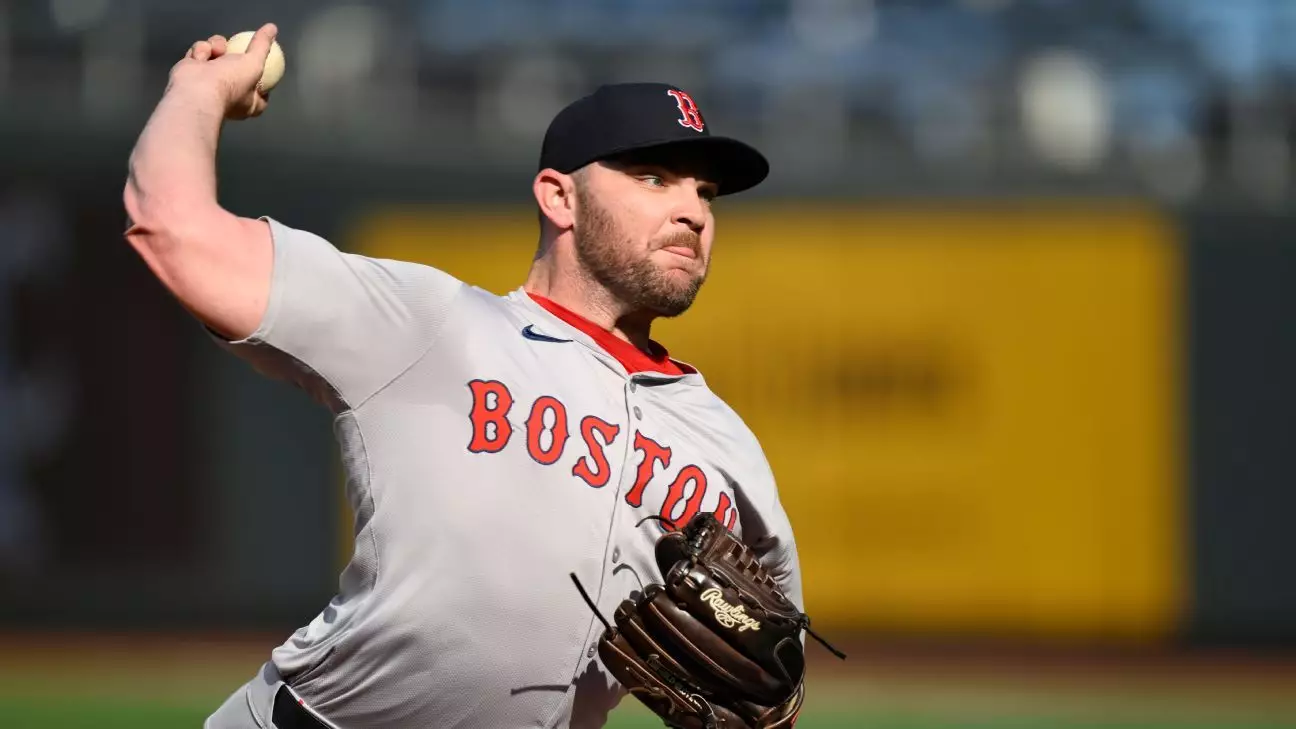In today’s hyper-connected world, athletes are subject to relentless scrutiny. The recent case of Boston Red Sox reliever Liam Hendriks, who faced disturbing threats following a game’s outcome, starkly illuminates a significant issue in sports culture. On social media, Hendriks bravely voiced his frustrations over death threats directed at him and his family. This alarming incident serves as a reminder of how the toxicity of online interactions can cross perilous lines. Society needs to grapple with the implications of our actions, especially in the digital age where anonymity can embolden the worst of human behavior.
The fact that a professional athlete is compelled to confront not just the pressures of performance, but also harrowing threats to his life and that of his family, raises serious ethical questions. The social media landscape has emboldened individuals to spew hatred under the guise of anonymity, diluting the repercussions for their actions. As Red Sox manager Alex Cora articulated, it becomes increasingly complex when fans, feeling the weight of their emotional investments, lash out at players. The need for a cultural shift in how athletes are viewed, and subsequently treated, is long overdue.
Empathy Amidst the Chaos
Cora’s empathy for Hendriks touches on a critical element of leadership in sports: the necessity to foster a safe environment for players. Sports’ cultural fabric often teaches players to endure adversity without complaint; yet, as Cora points out, it is essential to voice dissent against unacceptable behavior. The duality of admiration and animosity that surrounds athletes must be disentangled. Upholding the mental well-being of players should take precedence, as they are not merely avatars of our expectations, but human beings experiencing the same fears and uncertainties as anyone else.
Athletes invest a tremendous amount of sweat, blood, and sometimes tears into their careers. Hendriks’ story is a poignant reminder that their challenges extend beyond the field. After overcoming non-Hodgkin’s lymphoma and fighting to regain his spot in the game he loves, he should never have to navigate the treacherous waters of public threats over a game’s outcome. Instead of fostering a culture of vitriol, we ought to cultivate understanding and respect for the human being behind the jersey.
The Illusion of Control
What compounds the issue is the rise of a gambling culture intertwined with sports. The increasing prevalence of sports wagering presents athletes with an additional layer of pressure. Fans, realizing their financial stakes in any given performance, may feel that their entitlement to voice dissatisfaction is justified. Cora correctly notes that when fans take a personal stake in the game, it creates a dangerous situation that can have devastating implications, not just for players but for the integrity of the sport itself.
The unpredictable nature of sports should be celebrated for its capacity to unite fans. However, this should not morph into a justification for hostility. The thrill of victory should never revolve around shaming those who stumble. The old adage, “It’s just a game,” needs reinforcement amidst the fervor of competition to remind everyone—players and fans alike—that empathy and sportsmanship should reign supreme.
A Collective Call to Action
As we reflect on incidents like Hendriks’ alarming experience, it ignites the urgent need for collective action. Sports leagues, organizations, and even social media platforms must take responsibility for creating safer environments for their players. Implementing rigorous guidelines against harassment can foster an atmosphere of respect. Athletes should be celebrated for their perseverance and skills rather than pilloried for their misfortunes.
The conversation around mental health in sports has gained traction, yet we must remain vigilant about the impact of external pressures on player wellbeing. Just as Cora’s heartfelt remarks challenge us to reconsider our behavior, they echo a critical point: we, as a sports-loving society, have a long way to go in redefining our relationship with sports figures. No athlete should have to endure threats or harassment for performing their passion, and it is high time society embraced that vital truth.


Leave a Reply